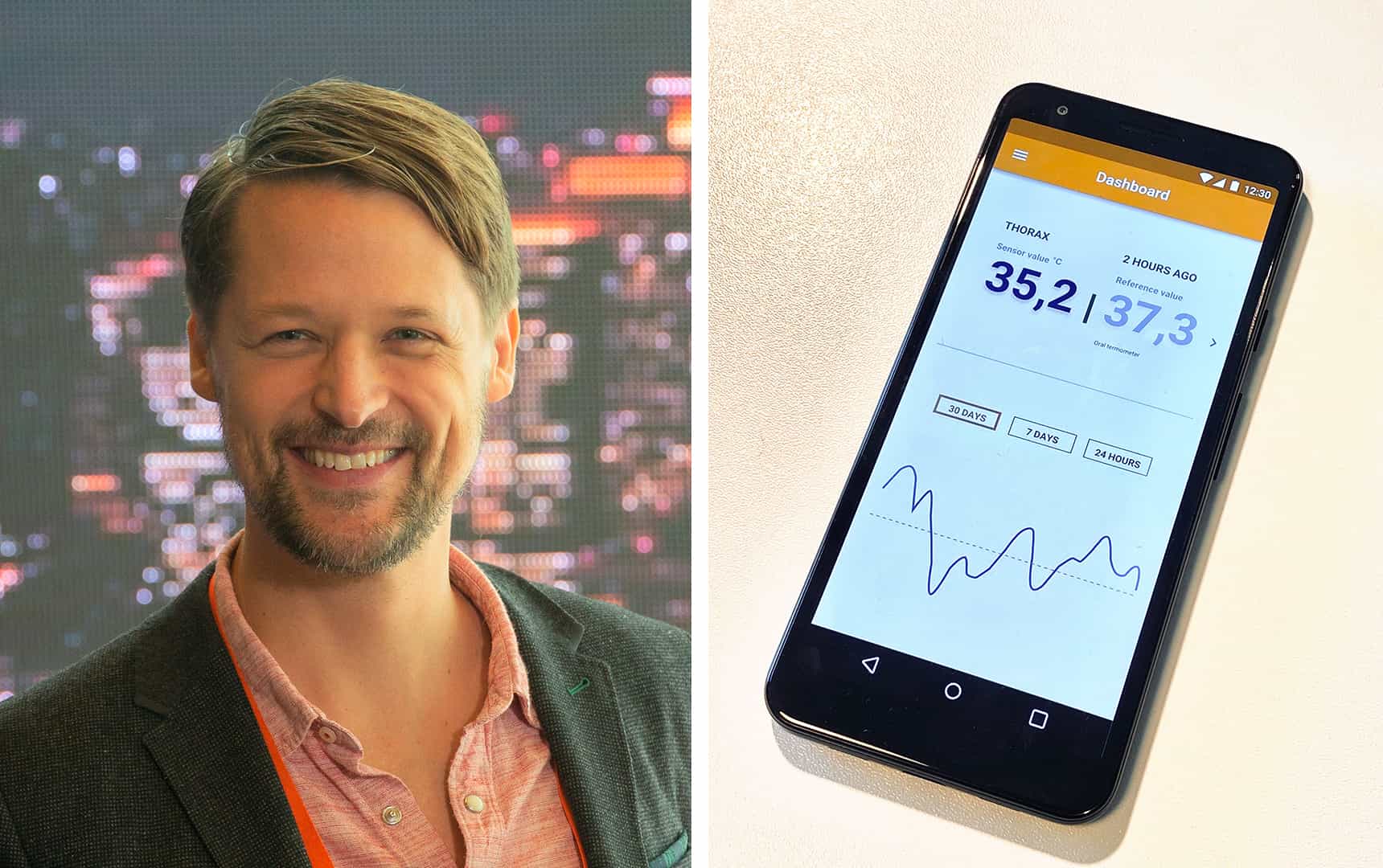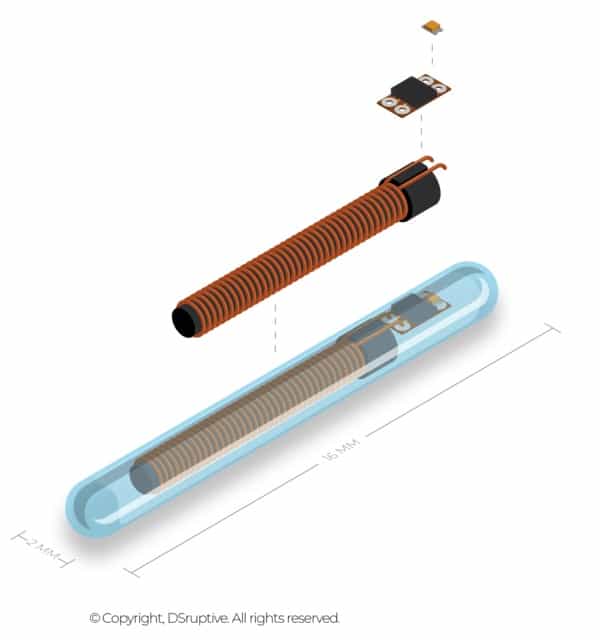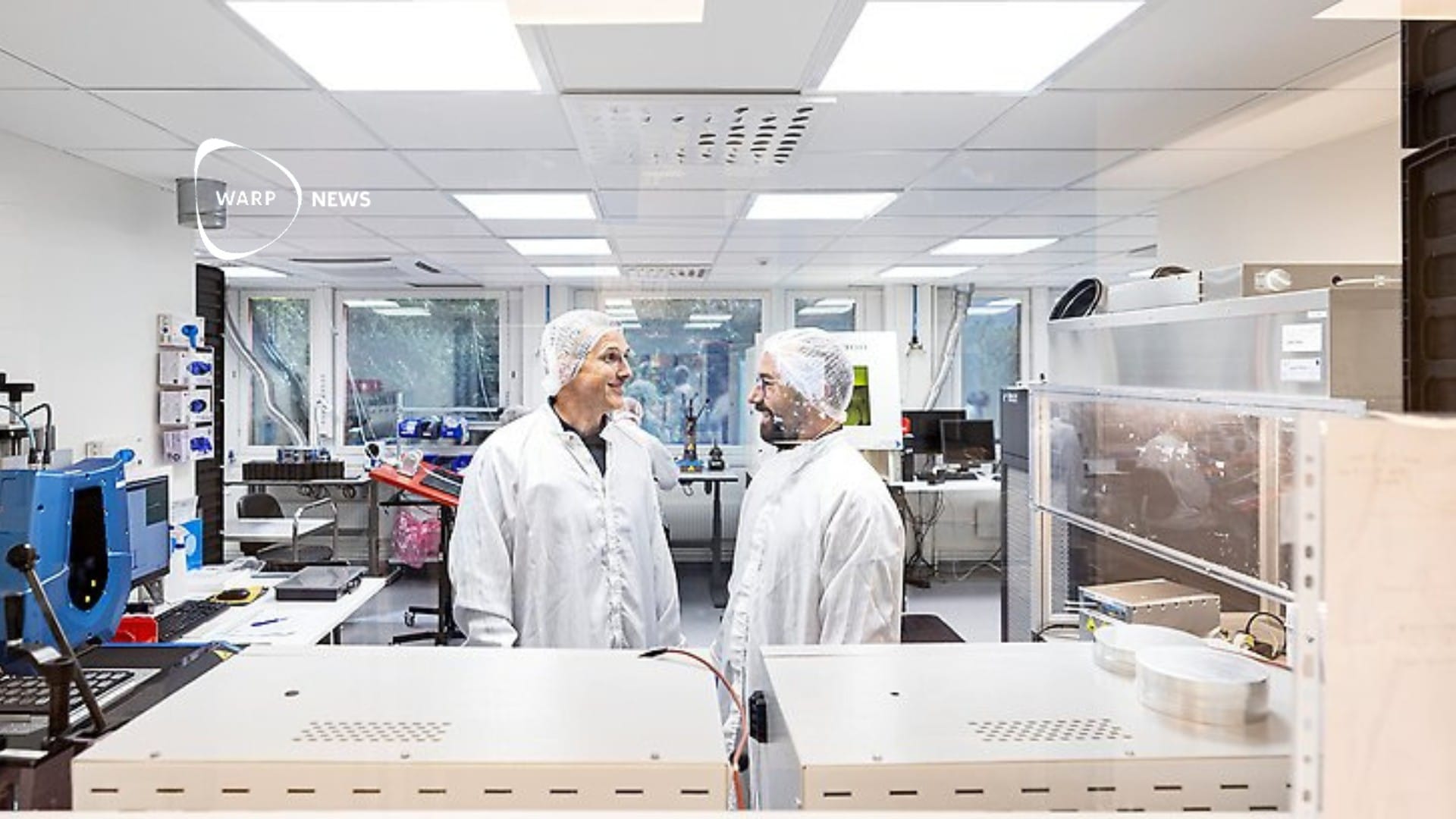
👩🏻🔬 Study opens for chip implants in humans
The Swedish chip implant company DSruptive Subdermals publishes a report from the first clinical study ever with temperature-measuring implants for humans.
Share this story!
DSruptive Subdermals is now publishing a report from the first clinical study ever with temperature-measuring implants for humans. The study was conducted together with researchers at Karolinska Institutet in Sweden.
The circuit itself is encapsulated in an implant, which is slightly larger than a grain of rice with its 16 millimeters in length.
"The implants enable users to read their body temperature without the need for an external thermometer. They also ensure that each measurement is the same over time. This provides long-term comparability in the data in a way that can not be guaranteed with ordinary thermometers or with wearables," says Hannes Sjöblad, Managing Director at DSruptive Subdermals.

Hannes Sjöblad believes that another advantage of implants is that they do not need to be charged and that they cannot be lost, which provides a more friction-free user experience.
"Temperature measuring implants can be used to see, for example, if you get a fever, which can be very practical during pandemics and epidemics. Then they can be valuable for both individual users and at the societal level as you can see if the amount of fever increases on a population basis. It is also possible to use this technique for various fertility applications."
Temperature measurements are just the beginning
In order for the implant to be approved for use in humans, they need to be certified. But in a few months the certification process will be completed, Hannes Sjöblad believes, and then you will be able to order DSruptive implants from one of the company's partners.
"Temperature measurements are just the beginning. In the long run, the goal is to be able to enable reading of other important vital parameters such as pulse, blood pressure and oxygenation in the blood. For this, there are already medically approved sensor systems that we are currently working on building into our platforms. Our goal is to create an implant where users can easily share information in real time with doctors or even smart algorithms that can then assist with diagnostics or remote monitoring."
"Most people don't ask for anesthesia"
The implant is inserted with a sterile disposable injector, it pinches but it passes quickly, says Hannes Sjöblad.
"If you want anesthesia before, it is of course possible to arrange, but most people do not usually ask for anesthesia. Then you have a bruise for a few days. Once the implant is installed, it has a very long life. Since it has neither batteries nor moving parts in any form, it can be used for decades."
So, if we look into the future, who have implants and what can we do with them?
"Myself and many others in this industry see that small passive health measuring implants are a cheap, robust and practical solution to enable a range of health services in remote monitoring. I am convinced that in a few years, millions of people will have health-measuring chip implants. Not least, they are valuable in countries that have less well-developed hospital systems and where it is more difficult to access diagnostics due to distance or other circumstances."
What do you think? Are you ready to chip in?
By becoming a premium supporter, you help in the creation and sharing of fact-based optimistic news all over the world.


